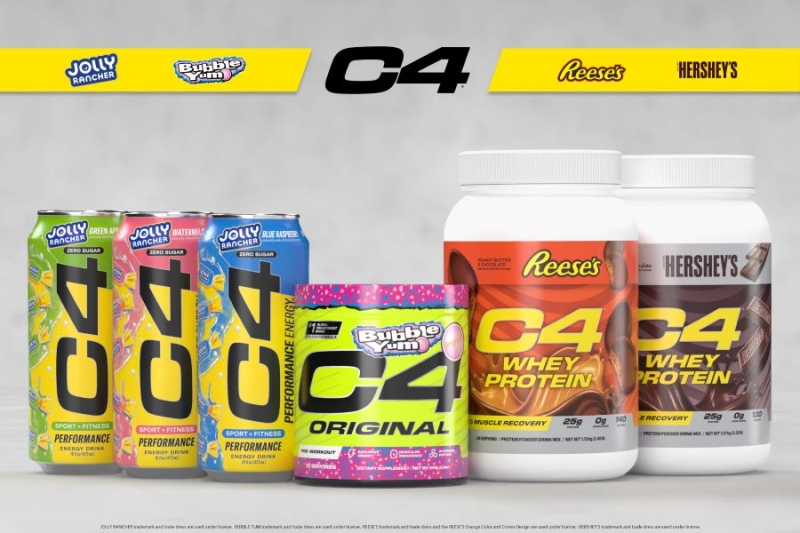20 Sep 2024 — This week in nutrition news, the White House gathered several human rights organizations to address nutrition and food security inequality in the US. Meanwhile, Arla Foods Ingredients introduced a campaign to spur dairy protein innovation and Vytala conducted its first pre-seeding round of funding for its plant-based nutritional solutions for consumers with gastrointestinal (GI) issues.
Nutrition news
The White House convened a meeting with human rights organizations such as the ACLU (American Civil Liberties Union), Human Rights Watch and the National Right to Food Community of Practice, which highlighted the Biden-Harris Administration’s agenda to advance racial equity, support underserved communities and address the US’s commitments to domestic human rights, including the right to food. The urgency of these discussions was driven by growing concerns over grocery redlining and inflation, exacerbating food insecurity, particularly among Black and Latinx households. Food justice advocates, including Tambra Raye Stevenson from WANDA (Women Advancing Nutrition, Dietetics and Agriculture), emphasized the need to recognize food as a human right and to dismantle systemic barriers to nutritious food access. The organizations urged the White House to act on the UN Committee on the Elimination of All Forms of Racial Discrimination recommendations for a rights-based national plan to combat hunger and ensure food security, especially affecting minorities, women and children. The proposed National Food and Nutrition Security Council aims to oversee this and ensure all Americans have access to safe, affordable and nutritious food.
Arla Foods Ingredients unveiled a campaign dubbed “Go High in Protein” to encourage dairy manufacturers to develop innovative high-protein products. Recognizing that over 40% of global consumers prioritize protein, the campaign addresses the quantity and quality of protein consumed. The campaign promotes Arla Foods Ingredients’ Nutrilac ProteinBoost, a range of microparticulated whey proteins meant to help manufacturers tackle the challenges of differentiation, processing and improving the taste and texture of high-protein dairy products. Central to the campaign is a virtual protein seminar where experts will talk and conduct a protein knowledge quiz. It also features five innovative concepts, including award-winning ambient spoonable and drinking yogurts that require no refrigeration, offering convenience and extended shelf life. Other concepts presented are a 10% protein ice cream, a high-protein, non-fat drinking yogurt with fruit and a 12% protein spoonable yogurt.
Business news
The US-based food and nutrition technology company Vytala held its first pre-seed financing round. The company said it looks to aid consumers with GI issues with advanced nutritional solutions and has developed a plant-based technology that creates a specialized lipid in crystallized form, which enhances fat and nutrient absorption without needing digestion.

Arla Foods Ingredients unveiled its “Go High in Protein” campaign to promote high-protein dairy product innovation (Image Credit: Arla Foods Ingredients). This innovation is particularly aimed at addressing malabsorption — a condition affecting one in five people with digestive diseases — by improving nutrient intake and supporting overall health. The company revealed it has received financial backing from entities like Robin Hood Ventures and Ulu Ventures in its bid to redefine food as medicine to support those with digestive issues and contribute to long-term health improvements.
Ethical nutrition and supplement brand Dr.Vegan has partnered with the UK supermarket player Waitrose to sell its products at 107 stores nationwide and online. The collaboration includes its vegan omega-3s, magnesium, vitamin D3 and its curcumin and turmeric supplements, which the company says are all sustainably produced and contain no additives or hidden ingredients. The listing at Waitrose, a first with a major UK grocer for Dr.Vegan, expands the brand, which is also available in specialized health stores and pharmacies, including Whole Foods Market in London and some online retailers.
Product launches
Nutrabolt, the producer of the pre-workout brand C4, joined forces with The Hershey Company to introduce new products across its energy drink, pre-workout and protein powder categories. The collaboration integrates popular Hershey flavors into Nutrabolt’s C4 product line, targeting fitness enthusiasts. The new flavors will launch this fall with further expansions planned throughout 2025. The first releases include a Bubble Yum Pre-Workout and Jolly Rancher C4 Performance Energy energy drinks in classic candy flavors. In October, the range will grow to include C4 Whey Protein powders in vanilla bean, Hershey’s milk chocolate and Reese’s Peanut Butter flavors. According to the company, the offerings aim to combine the nostalgic and beloved tastes of Hershey’s confections with the performance-enhancing benefits of C4’s scientifically formulated products.

Nutrabolt and The Hershey Company partnered to create new flavors for C4 pre-workout powders and energy drinks (Image Credit: Nutrabolt).
ZBiotics, a biotechnology firm specializing in genetically engineered probiotics, introduced its Sugar-to-Fiber Probiotic Drink Mix — a novel consumer product designed by microbiologists. The “first-of-its-kind” product is geared toward tackling Western dietary fiber deficiencies by converting dietary sugar into a type of prebiotic fiber called levan, which can boost gut health. The company highlighted the broader potential of genetic engineering in health and environmental solutions and revealed that, despite the proven benefits of fiber for digestive and immune health, most US citizens fall short of the recommended fiber intake. ZBiotics said it addresses these gaps by offering a genetically engineered solution that diversifies and enriches the microbiome, optimizing digestion and overall health.
Pet nutrition
Nestlé invested over £150 million (US$199,981,500) in its Nestlé Purina PetCare factory in Wisbech, UK, to cement its ongoing global investments in the thriving pet care sector. The Wisbech site, which produces popular UK pet food brands like Felix, Gourmet and Winalot, is undergoing extensive upgrades including the latest production technologies, facility improvements for its 600 workers and initiatives aimed at enhancing energy efficiency and reducing carbon emissions. The upgrades are expected to be completed in early 2025 and have already facilitated the creation of 40 new skilled positions to manage the advanced technology.

Hill’s Pet Nutrition introduced an addition to its Science Diet product range for puppies and kittens with sensitive stomachs. Additionally, Nestlé Purina is investing in skill development for its current employees, underscoring Nestlé’s focus on expanding its pet care division, noting that the division’s sales rose to 20% in 2023 from about 12% ten years earlier. Nestlé has also announced significant investments in pet care facilities across the US, Brazil and Hungary to meet the evolving consumer demands in pet care trends and pet well-being.
Hill’s Pet Nutrition introduced new puppy- and kitten-sensitive stomach and skin foods to its Science Diet line, aimed at easing the challenges new pet owners face with young pets. These products focus on providing highly digestible, prebiotic fiber-enriched food that promotes healthy skin, coat, brain and eye development, muscle growth and stool quality. Recognizing the rapid growth that occurs in the first year of a pet’s life, the recipes cater specifically to the needs of puppies and kittens for optimal cognitive and physical development. The company emphasized that the goal of the new formulas is to help pet owners overcome early obstacles with a scientifically formulated diet that supports overall health and well-being in puppies and kittens.
Scientific studies
Researchers from Drexel’s Dornsife School of Public Health published a study in Health Affairs indicating that millions of eligible US adults might be avoiding enrollment in Medicaid and the Supplemental Nutrition Assistance Program (SNAP) due to fear of immigration enforcement in areas with high “detainer requests.” These requests are formal calls from US Immigration and Customs Enforcement (ICE) for local authorities to detain individuals suspected of being in the country illegally. The study showed a significant association between the frequency of detainer requests and lower participation in these government programs, with a stronger impact noted in households with at least one immigrant compared to those entirely composed of US-born individuals. The study analyzed the number of detainer requests along with Medicaid and SNAP enrollments in every US county in 2011, 2016 and 2019.

Two studies show that fear of detention may keep immigrant families from seeking food and medical assistance in the US. Results from a related study published in the Journal of Urban Health highlighted a persistent fear among immigrants and US-born citizens living in mixed-status or immigrant communities, which deterred them from engaging with government services due to the risk of drawing attention that could lead to detention or deportation of themselves or loved ones. The researchers from both studies emphasized the need for outreach programs to assure immigrant communities that their personal information would not be shared with ICE in order to rebuild trust and encourage higher enrollment in these essential services.
A recent study discovered that intravenous administration of the medicine ferric carboxymaltose performed more effectively and rapidly than oral iron tablets in treating anemia and proved equally safe, according to findings published in Lancet Global Health. Anemia, characterized by low blood levels, is a prevalent cause of health complications or mortality among mothers and infants, particularly in regions like sub-Saharan Africa and Southeast Asia, where it affects over 40% of pregnant women. Despite preventive measures with iron tablets during pregnancy, many Nigerian women still experience anemia at childbirth. Additionally, intolerance of iron tablets due to side effects such as diarrhea, nausea, vomiting or simply forgetting to take them are common issues. Furthermore, current intravenous iron solutions in Nigeria, like iron dextran, pose a high risk of severe side effects, while iron sucrose requires multiple doses, highlighting the need for a safer and more effective alternative.
By William Bradford Nichols

